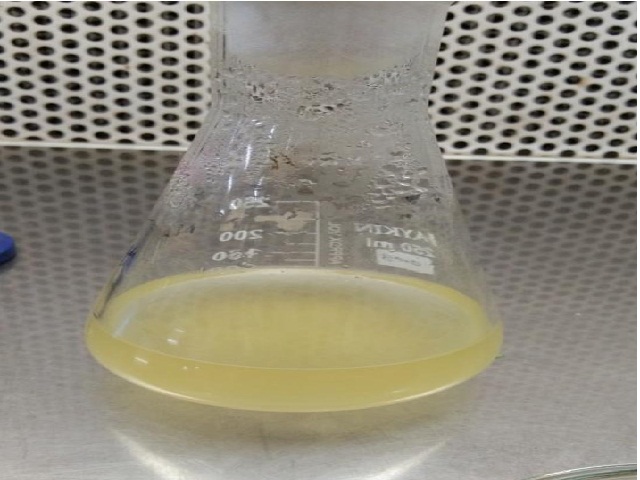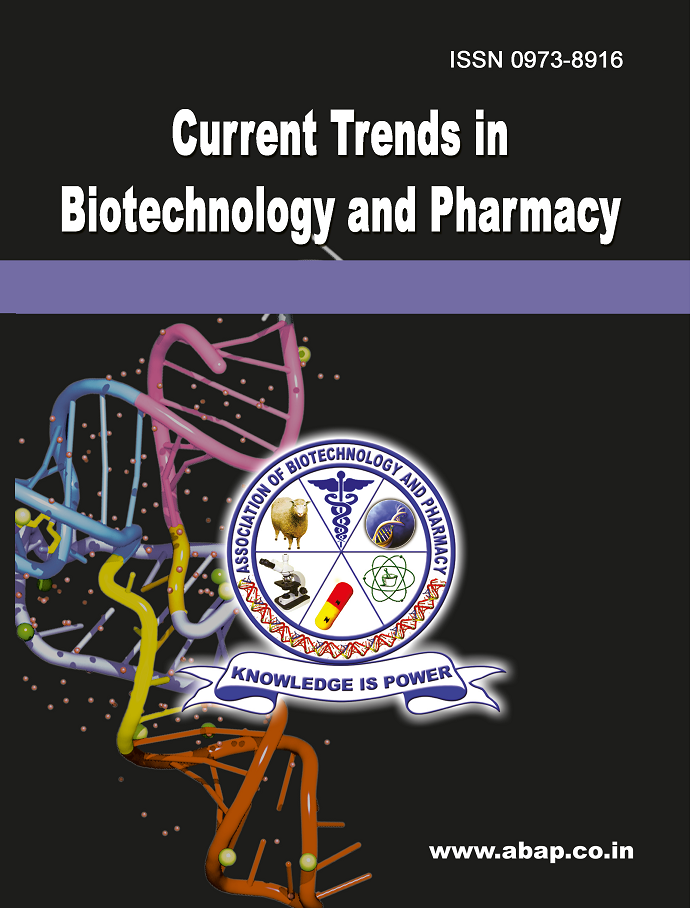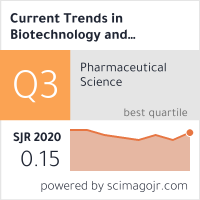Fungal Mediated Conversion of Food Waste to Compost
DOI:
https://doi.org/10.5530/ctbp.2021.6.2Keywords:
Food waste, Lipase, Protease, Degradation, Bio compostAbstract
Food wastage is one of the wastes released from diverse sources such as households, food processing industries, institutions, hospital, catering services and other sectors while manufacturing, managing, and processing or on consumption steps. If the food waste is managed effectively and converted to compost it would solve environmental issues. Recent studies show that composting is an effective technique for bioconversion of waste. Composting can transform food waste into hygienic, humus rich, comparatively stable products which conditions soil and enhances plant growth. Organic components of food wastes consist of vegetables, fruits, cooked food wastes and many others. This study focuses on the management of food waste and converting the waste into compost. Fruit and vegetable waste were collected from the canteen in VIT University, Vellore. The collected fruit and vegetable waste were then cleaned with distilled water. The cleaned vegetables and fruits were blended together and inoculated onto Sabouraud dextrose agar plates after serial dilution. Fungal strain thus isolated was screened for the production of different enzymes. The potent fungi isolated from fruit and vegetable waste were able to produce enzymes like amylase, protease, lipase and cellulose. These enzymes can break down complex compounds present in the fruit and vegetable waste thus accelerating the degradation process. Morphological identification was performed and the potent fungus was confirmed as Aspergillus niger. Degradation ability of food waste crude extract was analyzed using analytical technique- High performance liquid chromatography (HPLC). The potent fungus showed 95% of degradation rate post 5 days of incubation. The waste was inoculated with the isolated fungi and converted to compost by 3 months duration. Fruits and vegetable waste contribute to a large percent of food waste and hence requires a sustainable management method. Biological approach using fungus gives a higher rate of solubilization of organic compounds present in food waste compared to the conventional disposal of food waste. A significant reduction of food waste was achieved using biological methods to combat the increasing food waste crisis. These food wastes are converted to compost which can be used as a developing pathogen free soil amendment.



